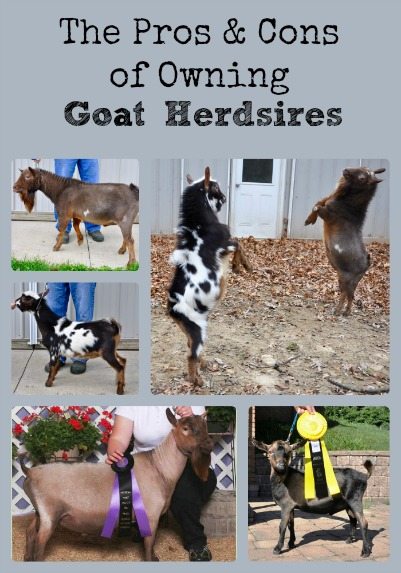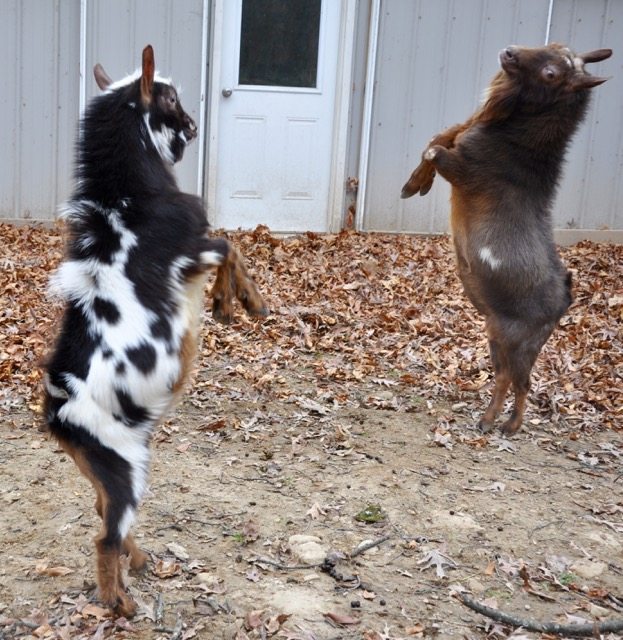Owning your own goat herdsires gives you the most control over the genetics of your herd (after all, they should 
For the first couple of years of owning Nigerian Dwarf goats, we didn’t own any herdsires, and each fall I remember why.
All of our resident herdsires (OMF Field Mouse, Dragonfly Calvary, Bramblestone Celtic Quinn, & Bramblestone Mighty Quinn) have been polite and affectionate guys that we generally enjoy having around – until fall rolls around.
Cons
Fall is traditional mating season for goats, and goat bucks develop a very strong odor during mating season. On top of that, they urinate on their faces and beards to increase their attractiveness (to the does). This can lead to urine scald on their legs and undersides.
Also, particularly when bucks are housed near the does, it can be difficult to keep weight on them. They spend all their time running around looking for the does, so it’s generally been necessary for us to feed them grain. When we do feed and water they, they seem to think it would be a good idea to make us smell better too by “marking” us. Phew!
Finally, you have to make arrangements to feed and house the bucks all year long but they don’t contribute anything back for most of the year like the does do (kids and milk).
Pros
Having herdsires does make it quite easy to tell when a doe is in heat. Just put a buck in a stall next to the doe, and she’ll make advances if she is. We used that approach this year and it appears that all the does were successfully bred the first time around (the kidding schedule is here).
Before we owned herdsires, it was often difficult to tell when a doe was in heat, and when we should transport her to the farm owning the service buck. That led to lots of wasted time transporting does back and forth – sometimes without them being successfully bred.

Choices
So, it’s a balance between the expense and smell of keeping the bucks year-round and the convenience of having them available when needed for breeding. When we had just a couple of does, it really didn’t make sense to us to have herdsires – it was more work and expense to house, feed, and maintain them than seemed worth the effort. But, now that we have several does, we find that it’s worthwhile to have them onsite.
Now that we’ve decided to keep a couple of resident herdsires, it did make sense to us to make better housing arrangements for them. Previously, they were housed in the same barn area as the does (although in separate pens) which likely contributed to their tendency to lose weight during the fall. So, we’ve added a separate barn and pasture area just for the bucks. Now they have their own smelly little corner of the farm!
Leave a Reply